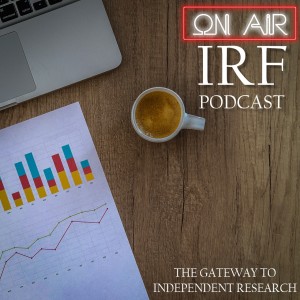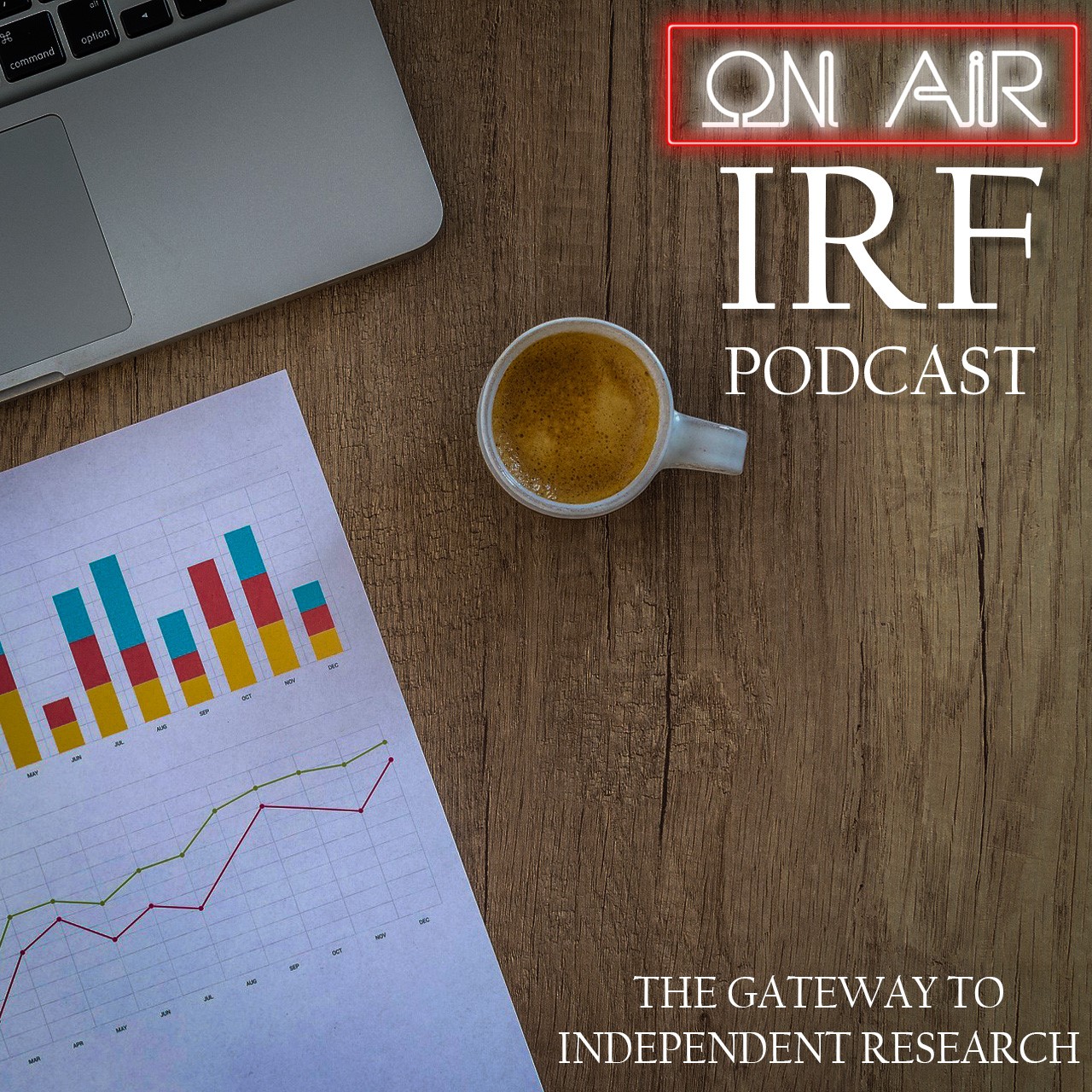Episodes

Friday Jun 13, 2025
Friday Jun 13, 2025
David Osman of IRF is joined by Manoj Pradhan, the Co-Founder of Talking Heads Macro.
Read the rest of this entry »
Wednesday Apr 30, 2025
“Mispriced Markets in an Era of Uncertainty”, Helen Thomas, Blonde Money
Wednesday Apr 30, 2025
Wednesday Apr 30, 2025

Friday Mar 21, 2025
Friday Mar 21, 2025
David Osman of IRF is joined by Jonathan Wilmot of Wilmot ML.
In this podcast, Jonathan Wilmot discusses the future development of artificial intelligence with particular reference to the USA, China and the broader Macro implications. He then assesses President Trump’s agenda for his second term and notes that Trump is “an old man in a big hurry”. This is creating some uncertainties, not least the potential for high tariffs to cause some economic and financial disruption. Jonathan reviews the outlook for US economic growth, inflation and interest rates. He assesses the ramifications for the bond and stock markets, before concluding with an assessment of where we are in relation to his analysis of the long-term trends and cycles over the past two centuries.
Jonathan Wilmot is a former FX Strategist at Bank of America, Fixed Income Strategist at Merrill Lynch and Chief Global Strategist at Credit Suisse. He has been described as “one of the brightest minds on Wall Street”. In 2017 Jonathan established his own Macro-research boutique and AI investment start up. Wilmot ML is the research arm of XAI Asset Management. Their primary focus is on the policy and market implications of the cycle in global growth and risk appetite, as well as the drivers of long-term structural change in the world economy and geopolitics.

Sunday Feb 23, 2025
Sunday Feb 23, 2025
In this podcast Ron William of RW Advisory discusses the cyclical trends and other factors that will be having an impact on the global financial markets in 2025 and beyond. Ron assesses the investment implications for the currency, bond, equity and commodity markets. In doing so, he highlights some key non-consensus views.
In the currency markets, Ron points out the key support levels for the US dollar trade weighted index (DXY) and discusses the outlook for the dollar’s main cross rates with the euro, sterling and the Japanese yen.
In the bond markets, Ron discusses the potential for US and UK interest rates to experience a prolonged “higher-for-longer” period, which would rhyme with the pattern in the 1970s. He then discusses the upside potential and asymmetric cyclical downside risks in the US, UK and other key stock markets.
Ron concludes with an assessment of the prospects for gold and some of the other important commodities with reference to the longer run Kondratieff wave and the shorter cyclical trends, including those influencing the main cryptocurrencies, such as Bitcoin.

Sunday Jan 26, 2025
Sunday Jan 26, 2025
David Osman of the IRF is joined by Jeffrey Christian, the founder and managing partner of the CPM Group.
Jeffrey Christian has been a prominent analyst and advisor on the commodities markets since the 1970s, with work spanning precious metals, energy markets, base metals, the agricultural markets and economic analysis. In this podcast Jeffrey provides a wide-ranging rundown on the outlook for commodity investment in 2025. He starts with an assessment of the relative prospects for the prices of gold, silver and the platinum group of metals.
In the energy sector, Jeffrey considers the various factors that make the outlook for crude oil prices very uncertain this year, not least because potential developments in the Ukraine, in the Middle East and with US foreign policies. He expects oil prices to remain relatively high, but possibly with a slight downside bias, given the risk of a global economic recession commencing later this year or in 2026. Jeffrey then highlights his preferred commodities and concerns in the base metals sector and the agricultural markets.
In conclusion, Jeffrey discusses the factors that are impacting on the flow of funds into the commodities sector and explains why he believes that global asset allocators should have an overweight position in commodities in a multi-asset portfolio for 2025.
Founded in 1986, the CPM Group is an independent commodities research, consulting, asset management and investment banking firm that provides comprehensive research, analysis, and advisory services. The CPM Group is also known for its overall economic analysis of the commodities markets and its expertise in financial engineering.

Wednesday Dec 18, 2024
“Investing Through The Business Cycle & Beyond”, Sharmila Whelan, Westbourne Research
Wednesday Dec 18, 2024
Wednesday Dec 18, 2024
David Osman of IRF is joined by Sharmila Whelan, the Founder of Westbourne Research.
Read the rest of this entry »

Thursday Dec 12, 2024
“Back to the Future: East Asia & Trump 2.0”, Paul Cavey, East Asia Econ
Thursday Dec 12, 2024
Thursday Dec 12, 2024
David Osman of IRF is joined by Paul Cavey, the Founder of East Asia Econ.
Read the rest of this entry »

Saturday Nov 23, 2024
Saturday Nov 23, 2024
David Osman of the IRF is joined by James Lucier, the Co-Founder and Managing Director of Capital Alpha Partners.
Read the rest of this entry »

Friday Nov 15, 2024
Friday Nov 15, 2024
In this podcast, Callum Thomas of Topdown Charts compares the current global interest rate cycle with the 3 previous ones. He points out what is different this time and what that might mean for the length and depth of this cycle. Callum then assesses the prospects for a reacceleration of economic growth and the associated risk of a resurgence in the rate of inflation. He discusses the implications of higher government bond yields for equity markets and other assets. Callum also compares Trump 2.0 and the current situation with the period in 2016 when Trump was first elected president and notes some important differences from an investment perspective. Callum concludes with an assessment of some of the main actionable risks and opportunities in the financial markets, as well as highlighting his underweight and overweight recommendations for active investors in the multi-asset universe.
Read the rest of this entry »

Friday Nov 15, 2024
Friday Nov 15, 2024
Paul Hodges, Founder of New Normal Consulting draws on over 30 years of experience in the chemicals, energy and IT industries to outline the most likely scenarios in the wake of the recent US Presidential election, asking to what extent Donald Trump will be able to implement his stated agenda given the secular forces at work in the global economy.
Read the rest of this entry »

